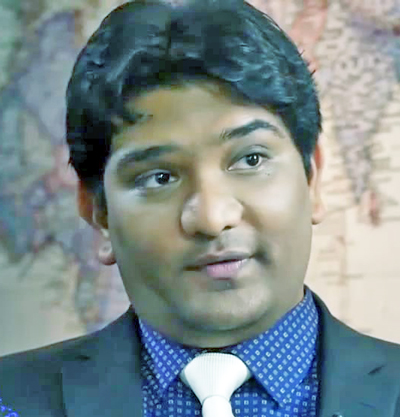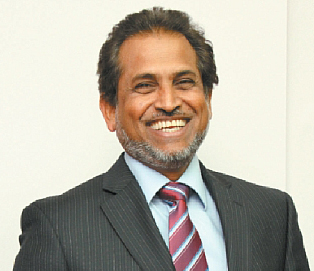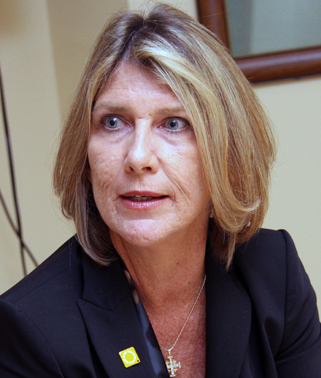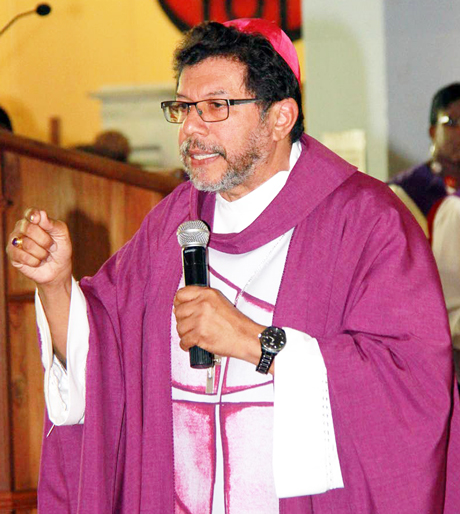Trinidad & Tobago
Economists say TT still in recession

Port-of-Spain – The announcement by Trade and Industry Minister Paula Gopee-Scoon that Trinidad and Tobago was “out of the recession” while citing “some small growth for 2018” raised a few eyebrows in economic circles earlier this month. Additionally, she indicated the government was hoping this year to build on the incipient 2018 growth.
Interestingly, a day before Gopee-Scoon made her statement, Prime Minister Dr Keith Rowley had admitted the country was still facing economic challenges.
Gopee-Scoon made her declaration the next day while thanking the Trinidad and Tobago Manufacturers Association’s outgoing president Christopher Alcazar for partnering with the government, while the country was “deep in the throes of the recession”.
Gopee-Scoon’s statement was also made against the background of Finance Minister Colm Imbert saying during his 2018-2019 budget presentation that the economy was projected to grow by 1.9 percent last year. However, he cautioned Trinidad and Tobago was not yet “out of the woods”, with the “economy is still vulnerable to external shocks”.

While noting a recession was technically defined as two consecutive quarters of economic decline, he conceded that “maybe somebody could say, technically, we are out of the recession, but that has been the case for probably a year or so”.
Ramkhelawan noted the new structure to the economy with lower government revenues and reduced GDP, and that the non-energy sector was struggling. To have economic growth, manufacturers needed to move downstream from the energy sector, he said. However, the only driver of the economy is the energy sector, which was supposed to grow by six percent in 2018, and in 2019 by 2.4 percent, according to IMF figures.
Said Ramkhelawan: “We are better off in the energy sector in terms of gas. We are not out of the woods at all in terms of the non-energy sector, because the non-energy sector really, is highly dependent on what happens in the energy sector – in terms of sales, in terms of distribution, in terms of services.”

Chief economist with the Barbados-based FinTech company, Bitt Inc., Marla Dukharan, did not agree with Gopee-Scoon, arguing that Trinidad and Tobago “was/is not in a recession”; instead, the country was in “stagnation”. Dukharan said for a country to be in stagnation was worse than a recession, noting Trinidad and Tobago has averaged zero growth for ten years.
Said Dukharan: “One quarter or one year of growth does not signal a reversal of a trend that has lasted ten years.”
According to the figures, in the last 15 quarters, Trinidad and Tobago’s non-petroleum sector averaged -2.84 percent growth. For the third quarter of 2018, this sector contracted -0.9 percent, more sharply than in the prior two quarters.
Dukharan also pointed to another indicator, which was the sale of new vehicles. The 12-month rolling total basis as of January 2019 was down seven percent year-on-year to the lowest level since June 2012.
“Social indicators in general point to negative trends,” Dukharan said. Also, there have been no labour force data since 2017, and with the closure of Petrotrin last year, “we would expect unemployment to have gone up”.
In responding to Gopee-Scoon’s statement, economist Dr Vaalmikki Arjoon said the reality is Trinidad and Tobago’s current circumstances are still in line with a recession.
“One per cent GDP growth is just a statistical value,” he said. A number does not provide food on the table, the ability to pay utilities, afford a car, or job security for many people, he declared. Additionally, “Our macroeconomic fundamentals clearly show that the economy has not sufficiently recovered.”
Vaalmikki suggested agriculture, shipping, and logistics are avenues outside of energy that could be developed to promote sustainable growth. However, in order for that sustainable growth to happen, there must be “an elimination of our pro-cyclical fiscal policy practices”.
Said Vaalmikki: “We take the easy way out and increase taxes as a means to earn revenue in a downturn. Our macroeconomic fundamentals clearly show that the economy has not sufficiently recovered.”
He noted investment activities in segments of the non-energy sectors are still stagnated, and the manufacturing sector continues to be underutilised by over 30 percent. Arjoon attributed the stagnation and underutilisation largely to the inaccessibility of foreign exchange, and difficulties with customs to clear machinery and raw materials.
He said measures to create faster, less costly, and more efficient business procedures in Trinidad and Tobago must be done as a matter of urgency, and called for prioritising expenditure, with a greater focus on capital expenditure. Such a move would improve infrastructure, transportation networks, generate more business, and productive employment opportunities.
Vaalmikki also suggested lowering the corporation tax for small companies to 25 percent to enable better competition with large companies.

Describing the statistics as alarming, Inglefield said one of the reasons for the increase is drivers are uneducated and untrained about road safety, and are purchasing their licences. Inglefield called for a crack down at the licensing offices where this illegal practice is happening.
“We are getting into vehicles, maxi taxis, we are getting into our own vehicles having bought our licences. That is becoming more and more apparent to us in our classes with young people, as well as with older people, who come for DUI via the magistrates court, and when we ask the question many of them have not been trained. They have not done defensive driving,” she said.
Additionally, “They have literally bought their licence – that is even Heavy-T drivers. So we need to close that gap very fast at that licensing office to make sure our drivers are well-trained, because we are literally killing people by not training and educating drivers on our roads.”
Inglefield said defensive driving should also be part of the examination process, instructors should be properly trained, and driving schools audited. “We need to change our behaviour. We need to educate our people. We need to make sure we are trained,” she declared.
Inglefield noted in the UK when drivers reach a certain age they are required to do an advanced examination to ensure they are able to drive, their eyesight is good, and they are healthy.
Said Inglefield: “We had Prince Phillip, for instance, who gave up his licence and he was driving in his 90s. So is not necessary the age but the competency of the driver and competency comes with training and education.”
She noted other contributing factors for the increase, include several pedestrians deaths on the Priority Bus Route, drivers breaking the traffic lights, alcohol, speed, and the lack of barriers and guardrails on the highway.
Another reason is that the roads were not designed for pedestrians and cyclists.
Said Inglefield: “We need to get our existing roadways up to mark, well-maintained with barriers, and guardrails. We have to make sure the lines are in place, that we have proper pedestrian crossing, particularly on that Priority Bus Route.”
While drivers, their friends, relatives and passengers must all be held responsible and accountable, she said those in positions to create significant change need to make sure they do their jobs.
Citing a recent accident involving a prisoner transport van in which people were injured, she said Police Commissioner Gary Griffith needed to ensure the driver be held accountable.
Said Inglefield: “I know he suspended the officers from driving the police vehicles, but plenty more should be done in the police service to ensure that all their drivers are held accountable and they only use the Priority Bus Route in the event of an emergency.”
Additionally, “We are appealing to the commissioner to step up to the plate with regards to his officers and ensure that they are driving safely and obeying all the laws.”
Inglefield said Trinidad and Tobago is one of the few countries in the world where officers do not wear their seat belts.
Noting that her organisation is in discussions with the Works Ministry to have a road safety week, Inglefield said tackling this issue is a collaborative approach that requires assistance from all stakeholders, including University of the West Indies, lecturers, victim support, Ministry of Social Services, Ministry of Works, and the police.
According to the United Nations, she said three percent of our GDP goes towards looking after families who have been injured and grief counselling.
Inglefield wondered: “How do we get our leaders to understand that we need to be proactive rather and reactive in all these issues that we have been discussing, and including victim support?”
She said families of victims need ongoing victim support, including for physio-therapy and post-traumatic stress disorder.
“We are not just seeing any thought in-to the process of true and focussed victim support between Ministry of Social Services and the TTPS,” she said.
A lot of victims confined to wheelchairs due to their injuries come from very humble families, she noted, adding: “And it takes a toll not only emotionally and psychologically but also financially.”

He said this anger was contributing to the violence now plaguing the country.
The death of a family of four in Toco last week sadden the religious head. Police believe 35-year-old Barry Choon murdered his wife, Shalini Sookdeo-Choon, his seven-year-old daughter Sarah, and seven-month-old son Jacob, before killing himself in the family's vehicle.
Said Gordon: “The violence in our country is very, very difficult to deal with, and it escalates and just keeps escalating, and keeps escalating. As a nation, we have to stop and ask, ‘What is all this anger about?’, and ‘Where is all this violence coming from?’, and ‘How are we contributing to this violence?’”
He added, “By the way we drive; our short temper at home; in the workplace; by the way that we are contributing to the build-up of tension. I think every citizen can find a way to bring it down.”
He said if each person can find a way to de-escalate his temper, Trinidad and Tobago will experience “the whole temperature of violence and anger in the country coming back down”.
Gordon said there was also an urgent need to assist people suffering from mental depression and other mental illnesses.
“We have to ask ourselves, ‘Is that anger?’ It seemed so strange. How do we help people, how do we identify those most in need, and how do we help the victims and the families?” he said.
Additionally, “Let us be conscious of the suffering ones in our midst and let us do something to help and alleviate the suffering.”
